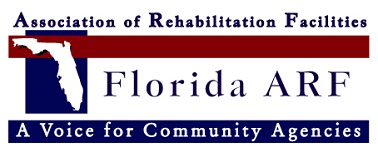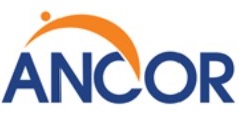Presuming competence in everyone we serve means we view behaviors as a means of communication instead of something needing to be “fixed” or trained out of them. This means our top priority is to help them find a voice to be able to communicate their needs and desires. One of the techniques we use to accomplish this is Facilitated Communication (FC).
Facilitated Communication is a technique that involves supporting individuals with communication difficulties to express their thoughts and feelings by providing physical and emotional assistance. Despite controversy and criticism surrounding this method, we believe that FC has the potential to be a powerful tool for individuals with communication impairments to connect with others and have their voices heard.
FC was developed in the 1970s as a means of supporting individuals with severe communication difficulties, such as those with autism, cerebral palsy, and other developmental disabilities with motor planning issues. The technique involves a facilitator, who provides physical support to the individual by supporting their wrist or arm, and emotional support by providing encouragement and affirmation. The facilitator’s support allows the individual to point to letters, words, or symbols on a keyboard or communication board to convey their message. In time, as the individuals become more comfortable, the supports may be decreased to a simple shoulder touch or even just the presence of the facilitator.
Critics of FC argue that the technique is unreliable and prone to error, as it is often difficult to determine whether the message being conveyed is that of the individual or the facilitator. Some have even claimed that FC is a form of “mind-reading,” where the facilitator is projecting their own thoughts and biases onto the individual they are assisting.
One of the reasons for this is because there currently are no regulations or certification requirements for those declaring to be trained facilitators. Many have only watched videos or others and simply copy what they see without an understanding of what is actually taking place. The certification process to become a facilitator is very complex and can take months. There is additional training to be able to assess individuals or train others to facilitate.
Families wishing to give FC a try also need to go through training and those receiving FC must undergo an assessment to ensure it’s the right therapy for them by someone certified to do so. While there are many people claiming to have the proper FC training, as of the writing of this blog, there are only three people in all of Northeast Florida holding the accreditation certification. Because of this, many critics of FC have never seen it utilized properly and therefore reach their conclusions without proper evidence.
Numerous studies have demonstrated that FC can be a highly effective means of communication for individuals with communication difficulties. Research has shown that FC can help individuals to communicate more effectively and can lead to increased social interaction and a greater sense of empowerment. By having FC as one of the tools in our toolbox, we increase our ability to give them a means of communication and, in turn, the value everyone deserves.
Furthermore, FC has the potential to provide individuals with communication impairments with access to information and resources that they might not otherwise have. For example, by using FC to communicate with their doctors or therapists, individuals with communication difficulties can more effectively advocate for their own healthcare needs and receive better care overall. Because of the negative implications FC has received due to improper use, many doctors and therapists refuse to accept it as a form of communication, and we have witnessed disastrous outcomes as direct result.
It is important to note that FC is not a substitute for other forms of communication support, such as speech therapy or assistive technology. Rather, FC should be seen as a complementary tool that can be used in conjunction with other forms of support to help individuals with communication difficulties to reach their full potential. It should be one of the tools in your toolbox and only used by those fully trained to do so.
While facilitated communication may not be without its challenges and limitations, we believe that it is a valuable and important tool for individuals with communication impairments. By providing individuals with the means to communicate more effectively, FC can help to increase their social inclusion, sense of empowerment, and overall quality of life.
Click Here for more information on how we can use Facilitated Communication to help you find success








